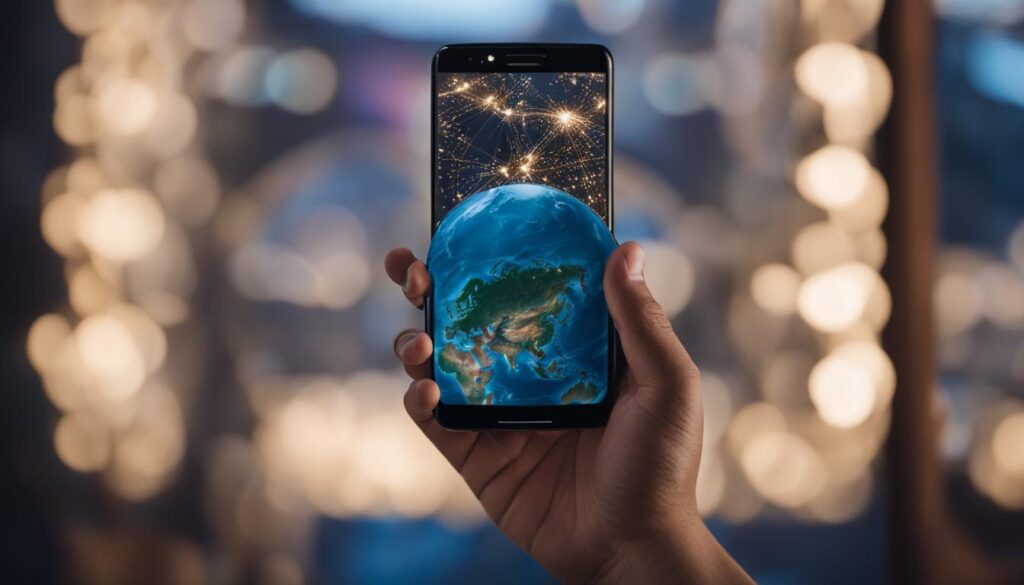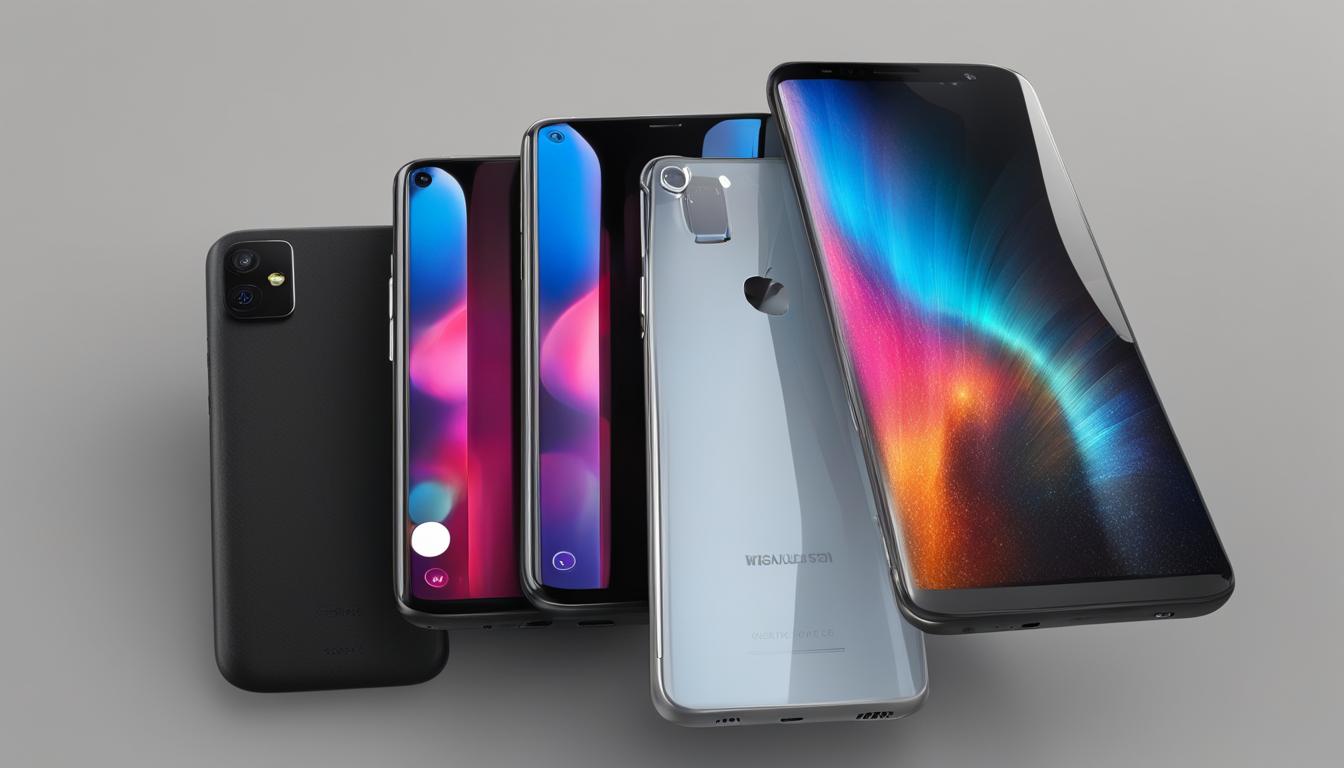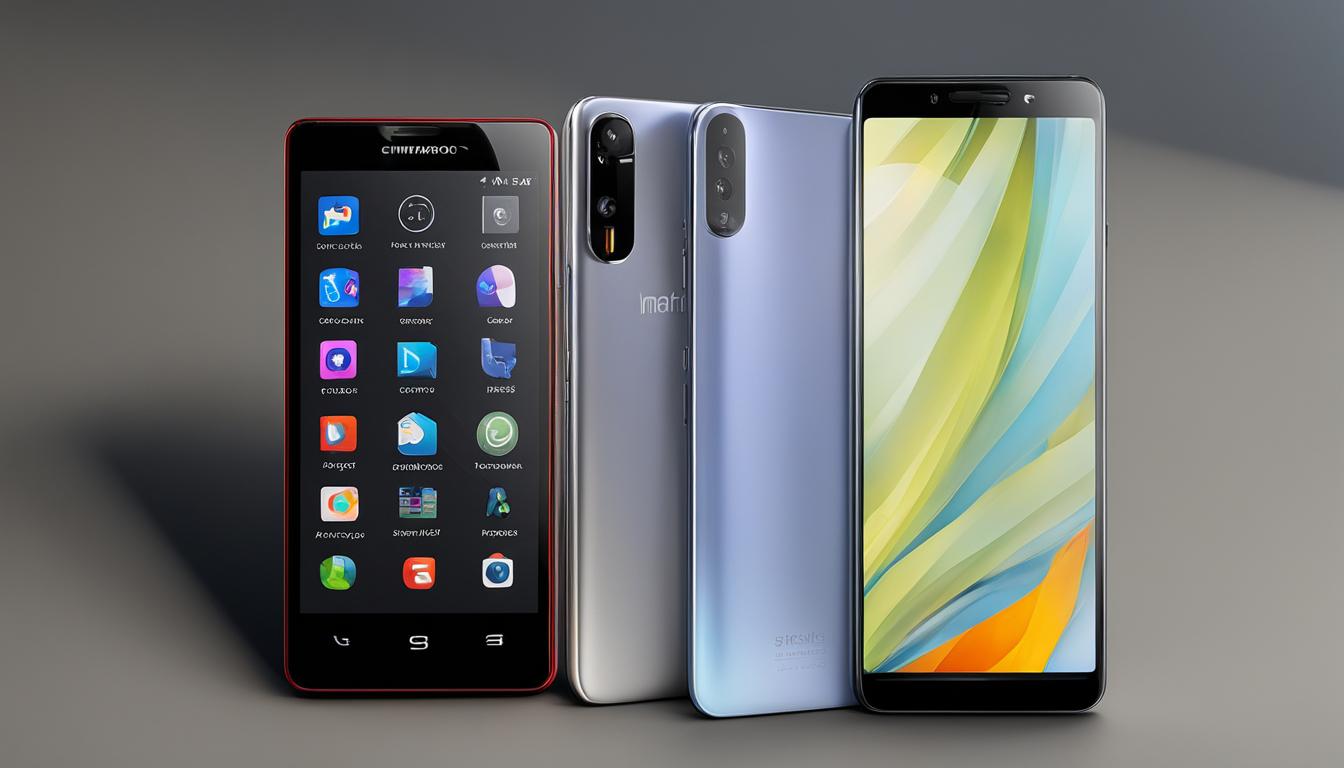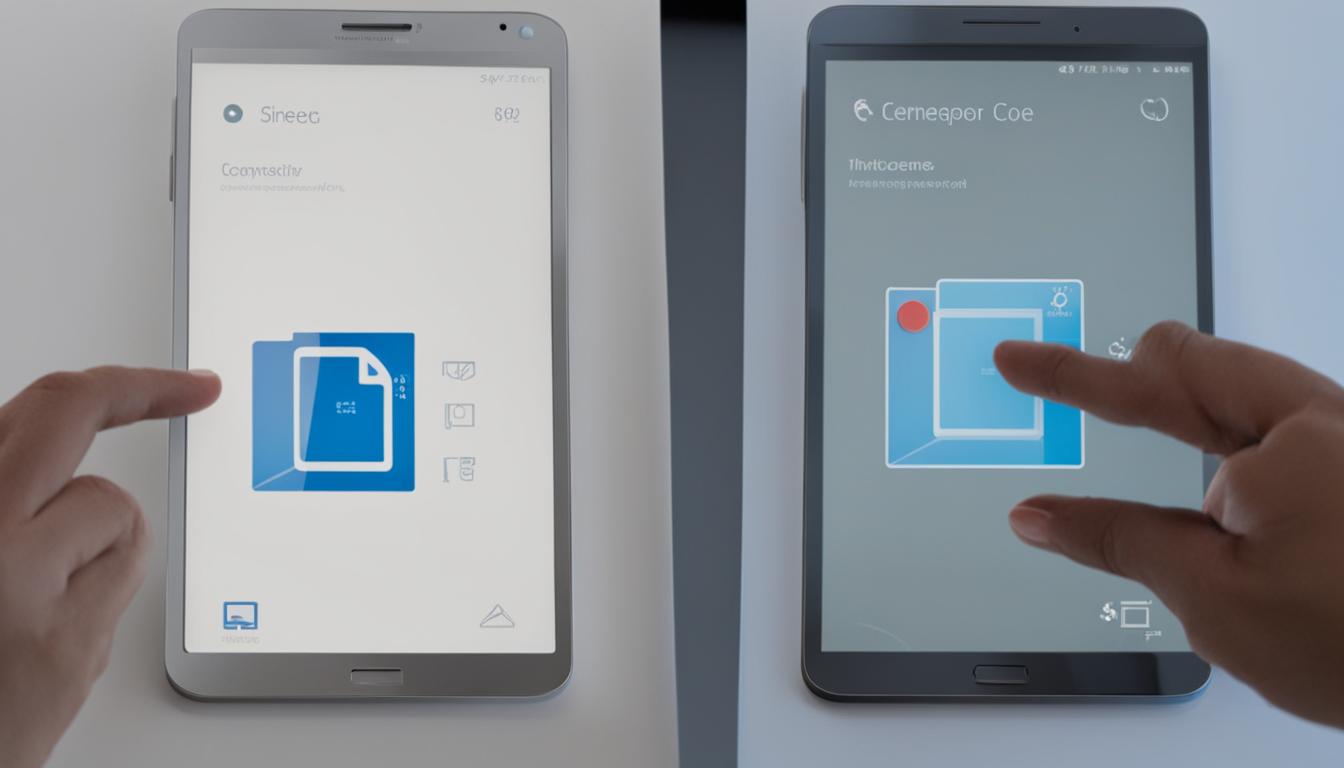Welcome to our article discussing the differences between locked and unlocked smartphones! In today’s fast-paced digital world, consumers have more freedom than ever when it comes to choosing a smartphone and a wireless carrier. Understanding the distinctions between locked and unlocked phones is crucial for making an informed purchase decision.
Locked smartphones are devices that come with a carrier-imposed “lock,” preventing them from being used on any other network. These phones are typically sold at a discounted price, making them an attractive option for budget-conscious consumers. Additionally, locked phones offer enhanced security against theft.
On the other hand, unlocked smartphones provide users with the freedom and flexibility to switch carriers and plans. They are not bound to a specific network, allowing users to take advantage of better coverage or more affordable rates offered by different carriers. Unlocked phones also have higher resale rates, making them a wise investment for those looking to upgrade their devices frequently or sell them in the future.
International travelers also benefit from unlocked smartphones, as they can easily activate their devices with local carriers wherever they go, avoiding expensive roaming charges.
Key Takeaways
- Locked smartphones are sold at a discounted price and offer enhanced security against theft.
- Unlocked smartphones provide users with the freedom to switch carriers and plans, have higher resale rates, and can be used internationally with local carriers.
- Locked phones are ideal for those on a budget or concerned about device security, while unlocked phones are suitable for frequent upgraders and international travelers.
- Consider your needs and preferences before deciding between a locked or unlocked smartphone.
Benefits of Unlocked Smartphones
Unlocked smartphones offer several advantages over locked phones. One of the key benefits is the ability to switch carriers and plans easily. With an unlocked phone, users are not tied to a specific network and can choose the carrier that offers the best coverage and rates for their needs. This flexibility allows users to take advantage of promotional offers and switch carriers without having to buy a new device.
An unlocked phone also offers higher resale value compared to a locked phone. Buyers have more freedom in using unlocked phones with different carriers, making them a more desirable option in the second-hand market. This means that users who frequently upgrade their devices can recoup a higher percentage of their investment when selling their unlocked smartphone.
In addition, unlocked smartphones are ideal for international travelers. With an unlocked phone, users can simply purchase a local SIM card in the country they are visiting and enjoy local calling and data rates, avoiding expensive roaming charges. This can result in significant savings for frequent travelers and provide a hassle-free experience when using their device abroad.
Table: Comparison of Locked and Unlocked Smartphones
| Locked Smartphones | Unlocked Smartphones | |
|---|---|---|
| Carrier Flexibility | Locked to a specific carrier | Can be used with any compatible carrier |
| Resale Value | Lower resale value | Higher resale value |
| International Use | May incur expensive roaming charges | Can be used with local SIM cards abroad |

To summarize, unlocked smartphones provide users with the freedom to choose their carrier, offer higher resale value, and enable cost-effective international use. However, it’s important to note that locked smartphones often come at a discounted price and provide additional security against theft. When deciding between locked and unlocked smartphones, consider your individual needs and preferences to make the best choice.
Locked vs. Unlocked Phones
When it comes to choosing a smartphone, one of the main decisions to make is whether to go for a locked or unlocked device. Understanding the differences between these two options can help you make an informed choice that aligns with your needs and preferences.
Usability and Flexibility
The primary distinction between locked and unlocked phones lies in their usability and flexibility. A locked phone is tied to a specific carrier and restricts users from using it with any other network. In contrast, an unlocked phone is compatible with any compatible carrier, offering the freedom to switch providers and plans as desired. This flexibility makes unlocked phones an attractive option for individuals who want the freedom to switch carriers or travel internationally and use local SIM cards.
Pricing and Customer Support
Locked phones are generally sold at discounted prices by carriers to incentivize customers to choose their service. In exchange for the discount, users are required to stay with the carrier for a specific period. Additionally, locked phones often come with customer support and warranty services offered by the carrier. Unlocked phones, on the other hand, are typically sold at their full retail price, allowing users the freedom to choose their preferred carrier without any contractual obligations.
| Locked Phones | Unlocked Phones |
|---|---|
| Lower upfront cost | Higher upfront cost |
| Restricted to specific carrier | Compatible with any carrier |
| Bundle with carrier support and warranty | No bundled support or warranty |
When considering a locked or unlocked phone, it’s essential to assess your budget, desired carrier flexibility, and long-term goals. If you prioritize affordability and don’t plan on switching carriers or traveling often, a locked phone may be the right choice. However, if you value the freedom to choose any carrier, switch providers, and use your phone internationally, an unlocked phone offers unparalleled flexibility and convenience.
Unlocking a Phone and Compatibility
Unlocking a phone is a process that allows users to remove the carrier-imposed lock on their device, giving them the freedom to use it with any compatible carrier. It is essential to understand how to unlock a phone and consider its compatibility with different networks.
To unlock a phone, users typically need to obtain the carrier’s consent. Each carrier has its own unlocking policy, which may involve meeting certain criteria such as a specified time period since activation or completing the contract. For example, Verizon allows phone unlocking after 60 days of activation for both prepaid and postpaid devices.
When considering unlocked smartphone compatibility, it is crucial to check if the device supports the network technology used by the carrier. Different carriers use either GSM (Global System for Mobile Communications) or CDMA (Code Division Multiple Access) technology. Some phones, such as the Moto G7 Play, Sony Xperia XZ2 Compact, and Samsung Galaxy Fold, are certified to work on Verizon and other networks, offering compatibility and flexibility to users.
| Carrier | Unlocking Policy | Network Compatibility |
|---|---|---|
| Verizon | Unlock after 60 days of activation | GSM and CDMA compatible |
| AT&T | Unlock after completing the contract | GSM compatible |
| T-Mobile | Unlock after paying off the device | GSM compatible |
Understanding the process of unlocking a phone and considering its compatibility with different carriers is essential for users who want the freedom to switch providers and plans while using their preferred device. It ensures that users can make the most out of their smartphone while enjoying the benefits and flexibility offered by unlocked devices.
Verizon’s BYOD Program
Verizon offers a convenient Bring Your Own Device (BYOD) program that allows users to activate their existing unlocked smartphones on a new Verizon prepaid or postpaid plan. This program provides users with the flexibility of using their preferred device while enjoying the benefits of Verizon’s reliable network.
With Verizon’s BYOD program, customers can easily switch carriers and keep their unlocked smartphones. This means they can take advantage of the freedom that unlocked phones offer, such as the ability to choose the best coverage and rates, higher resale value, and international compatibility. By participating in the BYOD program, users can have the best of both worlds: their preferred device and the excellent services offered by Verizon.
Eligibility and Criteria
To be eligible for Verizon’s BYOD program, your smartphone must meet certain criteria for approved hardware and software. This ensures compatibility and a seamless experience when using your device on Verizon’s network. It’s important to check Verizon’s website or contact their customer support to confirm if your device meets the required specifications.
| Eligibility Criteria | Examples |
|---|---|
| Device Compatibility | Apple iPhone 12, Samsung Galaxy S21 |
| Software Requirements | iOS 14 or later, Android 10 or later |
| Unlocked Status | Unlocked devices purchased directly from manufacturers |
| IMEI Check | Ensuring the device’s IMEI is clean and not reported stolen or lost |
Verizon’s BYOD program simplifies the process of switching carriers and allows users to enjoy the benefits of their unlocked smartphones while leveraging the power and coverage of Verizon’s network. If you have an unlocked device that meets the eligibility criteria, consider taking advantage of Verizon’s BYOD program to make the most of your smartphone and enjoy top-quality services.
Conclusion
In summary, understanding the differences between locked and unlocked smartphones is crucial when making a purchasing decision. Locked phones offer affordability and enhanced security against theft. However, unlocked phones provide users with the freedom and flexibility to switch carriers, enjoy higher resale value, and use their devices internationally.
Whether you prioritize cost savings, the ability to change carriers easily, or the option to sell your phone at a higher price in the future, both locked and unlocked smartphones have their advantages. Consider your individual needs and preferences to determine which option is best for you.
By weighing the pros and cons of locked and unlocked phones, you can make an informed choice that aligns with your lifestyle and usage requirements. Remember, the key is to find a smartphone that meets your needs in terms of usability, flexibility, and compatibility with different carriers. So, take your time, explore your options, and select the smartphone that suits you best.
FAQ
What is the main difference between locked and unlocked smartphones?
The main difference between locked and unlocked smartphones is the carrier-imposed “lock” that prevents a phone from working on another network.
What are the benefits of unlocked smartphones?
Unlocked smartphones offer users the freedom and flexibility to switch carriers and plans, higher resale rates, and can be used internationally with local carrier options.
How do locked phones and unlocked phones differ in terms of usability and flexibility?
Locked phones are limited to a specific carrier and require users to agree to stay on that network, while unlocked phones can be used with any compatible carrier, allowing users to switch providers and plans as desired.
How can I unlock a phone and ensure compatibility with the carrier’s network?
Unlocking a phone requires the carrier’s consent and can be done after meeting certain criteria. Users should check for GSM or CDMA support to ensure compatibility with the carrier’s network.
What is Verizon’s BYOD program?
Verizon’s BYOD (Bring Your Own Device) program allows users to activate their existing unlocked smartphones on a new Verizon prepaid or postpaid plan, providing them with the flexibility of using their preferred device while enjoying the benefits of Verizon’s network.
 Skip to main content
Skip to main content


